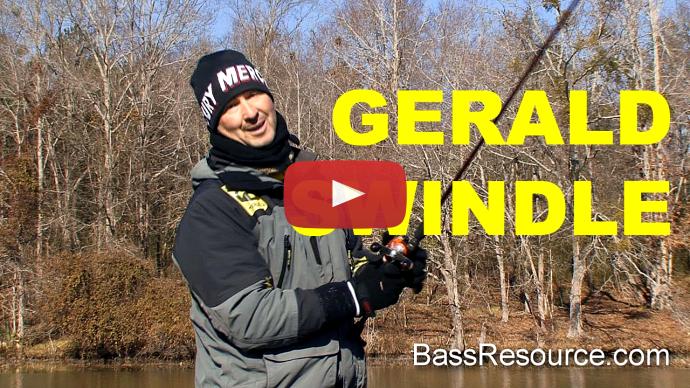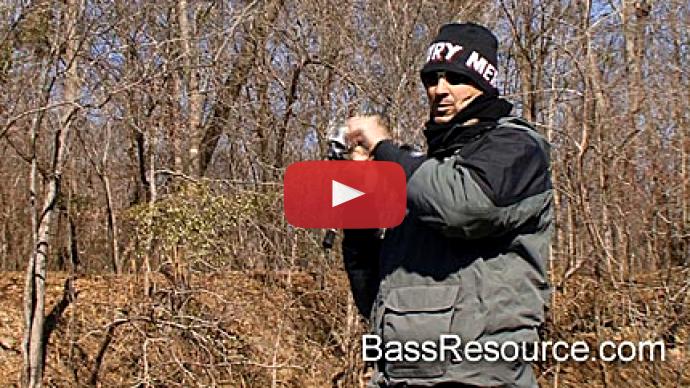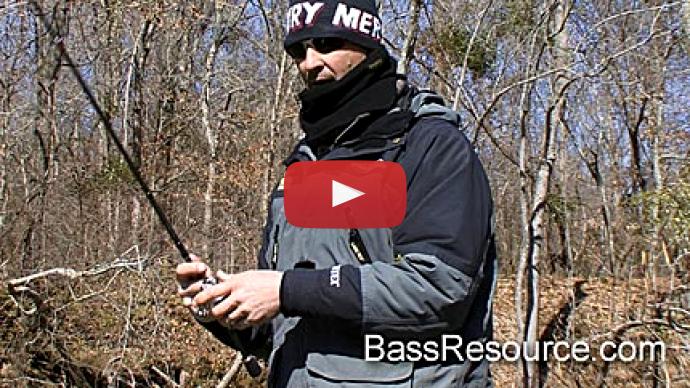In this episode, Gerald talks about his Classic DQ, reveals deep-water tactics, and tells us about his dream boat.
Glenn: Well, turning to something a little more serious, back in 2007 when you had that DQ in a Classic, has that affected the way you fish today?
Gerald: It doesn't affect, the DQ in '07, it doesn't affect how I fish this right now. Did it affect me afterwards? Heck yeah, man. I thought it was a bogus call, I thought it was unfair, and I thought that ESPN was just wanting media and they got it. It's not written in the rules, it was a judgment call, so yeah, there for a while, I stayed a little bitter about it but you put that stuff behind you. It doesn't change how I fish now, man, I strictly fish for the goals I have set and I'm not motivated by anger, any of that stuff. I kind of let that stuff go.
Glenn: So Gerald KYBass1276, he asks, he wants to know your thoughts on advantages and disadvantages that anglers face fishing the Classic being that it's the first event of the year. Specifically, he wants to know how you prepare yourself after being off for a couple of months.
Gerald: Well, really most of the guys will come back and fish some prior to the Classic, locally. Fishing and getting back in the swing of things, that's not that big of deal because most them kind of have a spring training. They'll leave home a week early and go fish every day and get back into the groove but the biggest disadvantage is getting all this in order. Wrapping boats and trucks and motors and getting stuff in. I mean, it was a day and a half before the Classic and my boat and truck was completely disassembled in my basement and they were wrapping it. So, the biggest disadvantage is trying to get all the loose ends tied up before the tournament, but as far as mechanically and all that, that's not that big a deal.
Glenn: Kind of like riding a bike, huh?
Gerald: Kind of like riding a bike. Once you get back in there, you're in there.
Glenn: Zell poses an interesting question here. He says in the old days of the Bassmaster Classic, contenders were only allowed 10 pounds of tackle and 4 rods. What would you do if the night before the Classic, tournament officials notified everyone that they were once again implementing this rule?
Gerald: Well, I'd probably take a spinning rod, so I could throw a drop shot or shaky head. I'd take one cranking rod, one flipping rod, and one rod to cast a jig with. So, I can take a 7 footer to jig with, a 7 foot medium to crank, 6'6" heavy spinning rod to work with, and a 7'2" flipping stick, I could probably get through with the whole deal, man. You know, just downsize. I'd have to fish the baits that I've got confidence in and my strength, which would probably be jigging and stuff like that. If they decided to do it, it'd be kind of kinky but just go with the baits you're the best with.
Glenn: And with 10 pounds of tackle, would that be primarily plastics or jigs or?
Gerald: Probably, probably half and half. I'd probably have couple pounds of crank baits and couple pounds of jigs, the rest of it in plastics.
Glenn: Well Larry Sullivan has an interesting question here. He wants to know how has this recession has changed the way you do things and do you fear for the fishing industry?
Gerald: The recession has changed things. Changed the way I do things a little bit, simply because I don't, I wasn't a big pre-fish in the beginning but I don't do as much of that as I normally would because the cost of fuel and hotels and people losing sponsorship. You're just not as frivolous. You don't buy extra tackle and you shop around hotel rooms, you stay more guys to a room. Plan your trips out a lot better. So that part you have to adjust to, but I do fear some for the industry. People are still fishing. A lot of people still buying fishing licenses, unfortunately, lot of people ain't buying boats and trucks and that's what we need to keep the economy going. So there's a little bit of fear there.
Glenn: Do you think things are going to get on the upswing here real quick?
Gerald: I don't think so, man. I think we're another year out before we see anything really change. Another year.
Glenn: AnglingAdam wants to know your favorite deep water tactic for northern lakes on the tour.
Gerald: Probably drop shot, man. I mean, if I go north and you end up fishing deep, it's just hard to beat drop shotting and looking at them. You know, that just seems to be the best way to catch them and always has been, so drop shot, drop shot, and then drop shot.
Glenn: You have a specific bait you like to use?
Gerald: You know, I don't think you can go wrong with a Zoom green pumpkin finesse, you know? I take it anywhere up there and catch them. I mean, you can try anything but that particular one is going to work day in and day out everywhere you go. So, green pumpkin finesse, quarter ounce weight, usually six or eight pound line.
Glenn: So here's another one. Grizzly1654, he writes in, what advice would you give someone who grew up banging the banks and is ready to move away from the bank and learn how to fish deep water structure?
Gerald: Biggest thing I'd probably tell you is learn to read your electronics. Study that stuff hard at home, read every manual, and get you a quality depth finder, and that's a much more efficient tool fishing deep. It'll save you a lot of trouble but you can learn a lot of that by looking at some of the information they have to offer whether it's an owner's manual or your dealer teaching you settings but depth finder, depth finder, depth finder to move off the bank.
Glenn: And here's a really interesting hypothetical question. Lund Explorer, he writes in. I'd like to see a detailed plan of how you would design two different boats, how would you equip them out from scratch. One boat would be fully rigged with no expense spared at all and the other one would be an entry level boat for guys just starting out. How would you go about doing that?
Gerald: I'd say my high end boat would be, I'd probably got with a Triton, a 21-X3. I would put heated seats in it, be the number one design, heated seats much like in your car that ran off solar power that got it from one of these lids so it never ran down your batteries, you just flip a switch and warm your seat as you ran. Nice built-in stereo. I'd like to be able to run about a 200 pound thrust trolling motor, so I'd have to reinforce the front nose for the rip and the turn of the trolling motor, probably go with a Mercury 250XS, something pretty strong, fast.
Maybe a little midget stripper pole or something to go in right here. Just a little chrome one on those tough derbies. That would be my biggest things I've always wanted was design heated seats, you know. I would like lights in the live well so when you're fishing at night and stuff like that you can kick on the lights and see down in the live well. That would be my fancy one.
My entry level would be a straight 18 ½ foot fiberglass Tritan. I'd build it out at the same type hull as this right here, the same design, to get the speed, wouldn't have very much in it. It'd have a flasher back there and a small, like an X-28 out front. Wouldn't get crazy on the depth-finder. I'd have me about a 10" jack plate manual, keep the price down. I'd set it up to run. I'd have most of the storage shifted to the back and not the front, so you would overstore it in the front and weigh it down. I'd paint it black and white, generic. Just a straight black and white mean boat.
There's my two boats.
Glenn: Lund Explorer also wants to know what new technology do you think has made a positive impact on the sport?
Gerald: Positive impact. I don't know, I think probably the oxygenator, all these live well systems that they're getting, where they've got all this extra way to keep them alive, I think stuff like that has probably made a more positive impact than what people realize simply because it helps keep the fish alive and that's what we're out here to catch is catch and release, so but more technology going into live wells, I think it's probably overlooked but it does make a difference.
Glenn: In following up on that, Pitching Kid wants to know what you think is going to be the next technological breakthrough in bass fishing?
Gerald: I don't know. They're getting so fancy with it man. I guess they're going to hire us and get some kind of dog trained. Bring him out here and let him point fish. I mean, they've got all these fancy depth finders, side scan, eagle scan, mount scan, you know, I don't know. I was hoping that you would see somebody come out with a better weather system for these boats, where you can pull up on the screen is what I look to be coming. You just pull the weather channel and just read the weather, wind direction would be pretty nice. That's what I predict is going to happen.



